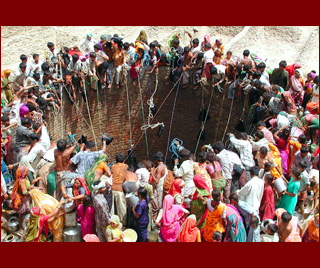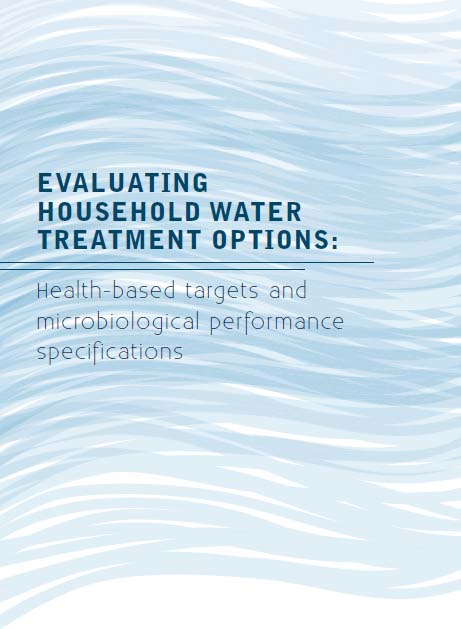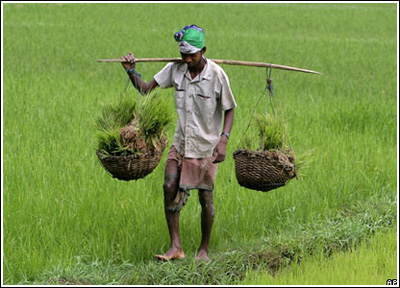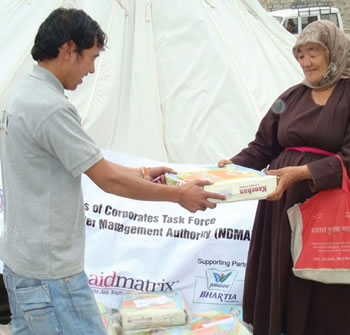/regions/india
India
Guidelines of the Central Rural Sanitation Programme and Total Sanitation Campaign by the Department of Drinking Water and Sanitation (2011)
Posted on 25 Jul, 2011 07:30 PMThis document by the Department of Drinking Water and Sanitation deals with the guidelines of the Central Rural Sanitation Programme (CRSP) and Total Sanitation Campaign (TSC). India’s first nationwide programme of rural sanitation, the CRSP was launched in 1986, while TSC was launched in 1999 with the aim of ending open defecation.
Public support to food security in India, Brazil and South Africa – Elements for a policy dialogue – A working paper by International Policy Centre for Inclusive Growth
Posted on 21 Jul, 2011 08:52 AM Together, India, Brazil and South Africa have about 20 per cent of the world’s population. Although the three countries have demonstrated the potential for transformative development in the South, their experience has been marked by key challenges such as relatively high levels of poverty, inequality and food insecurity, problems that persist for significant numbers of people.
Together, India, Brazil and South Africa have about 20 per cent of the world’s population. Although the three countries have demonstrated the potential for transformative development in the South, their experience has been marked by key challenges such as relatively high levels of poverty, inequality and food insecurity, problems that persist for significant numbers of people.
There is a potential to build a network of academics and experts from Brazil, India and South Africa, and food security is among the themes of great interest. This paper seeks to contribute to this process by examining pertinent elements of policy dialogue. As regards food security, each of these countries has developed conceptions and orientations that guide their policy agendas. They include distinctive treatments of several multi-dimensional strategies, multi-stakeholder arrangements and rights-based approaches.
India must prepare for future growth by planning a low-water economy - Article in YaleGlobal Online by Rohini Nilekani
Posted on 19 Jul, 2011 12:37 PMArticle and Image courtesy: YaleGlobal Online
Author: Rohini Nilekani
India and China account for one third of the world’s population; each consumes more freshwater than other nations. Per inhabitant per year, though, India uses less than half what’s used in the US, China uses less than one third. This YaleGlobal series examines India and China’s water use, their expectations for rising demand and recognition that shortages will disrupt economic progress.
The Planning Commission of India repeatedly warns that water will become a more serious issue than land or energy for India in years to come, points out Rohini Nilekani, in the second article of the series. India’s transition from an economy based on agriculture to a mixed one, with water use controlled by states rather than the federal constitution, already leads to conflicts. She urges planning for a low-water economy. Good governance and regulatory frameworks can prevent pollution and waste, while encouraging efficiency, reliable and fair allocation, and wise consumer choices.
 Thirsty earth: Indian villagers in Gujarat gather to draw water from a well
Thirsty earth: Indian villagers in Gujarat gather to draw water from a well
Impact of climate change on extreme rainfall events and flood risk in India – A paper in Journal of Earth System Science
Posted on 18 Jul, 2011 06:27 AMThe occurrence of exceptionally heavy rainfall events and associated flash floods in many areas during recent years prompted the researchers to study long-term changes in extreme rainfall over India.
Maps generated from the integration of water level data of Central Ground Water Board and State Ground Water Board
Posted on 17 Jul, 2011 03:49 PMThe CGWB under the Ministry of Water Resources, Government of India, is the national apex agency entrusted with the responsibilities of providing scientific inputs for management, exploration, monitoring, assessment, augmentation and regulation of ground water resources of the country.
Evaluating household water treatment options
Posted on 17 Jul, 2011 02:11 PM This document by the World Health Organisation, for the first time, sets forth global criteria to evaluate whether a household water treatment option reduces waterborne pathogens sufficiently to protect health. Through use of a risk-based framework and by emphasizing the philosophy of incremental improvement, it is intended to provide implementers and policy-makers with an evidence-based and pragmatic approach to select options suited to local conditions.
This document by the World Health Organisation, for the first time, sets forth global criteria to evaluate whether a household water treatment option reduces waterborne pathogens sufficiently to protect health. Through use of a risk-based framework and by emphasizing the philosophy of incremental improvement, it is intended to provide implementers and policy-makers with an evidence-based and pragmatic approach to select options suited to local conditions.
Household water treatment interventions may play an important role in protecting public health where existing water sources, including those delivered via a piped network or other improved sources, are untreated, are not treated properly or become contaminated during distribution or storage. Household water treatment applications are a range of technologies, devices or methods employed for the purposes of treating water at the household level or at the point of use in other settings, such as schools, health-care facilities and other community locations. Point-of-use water treatment is another term used for household water treatment.
Bamboo charcoal as a natural Water Filter - An indigenous rural application
Posted on 16 Jul, 2011 07:24 PMGuest post: Shwetha Kamath (India Water Portal Volunteer)
About 74 per cent of India's total population, currently about 1.25 billion, live in rural areas. More than one third of the water available to them is not potable. In a grim reminder that poor quality of drinking water leads to serious health problems, India has admitted that about 180,000 rural populated areas are afflicted by diseases which are caused due to impure, toxic organic and inorganic substances including tri-halo methane, chlorine, etc. Some states have reported multiple contaminations in drinking water and there is no doubt that the current water situation in India will get much, much worse unless suitable solutions are sought. Most existing purification methods not only remove the impurities but drain out the essential minerals as well. Moreover, they are expensive and require extensive maintenance. Thus a natural filter comprising of bamboo, gravel, pebble and other locally available natural adsorbents is a great alternative to carry out water purification. What makes this filter unique is the use of bamboo charcoal which is not commonly used in any filter designed for domestic purposes.
Why India's 'growth' focus is ignoring the food access question - Article from Infochange India
Posted on 14 Jul, 2011 11:41 AMArticle and Image courtesy: Infochange India
Author: Rahul Goswami
Celebrating the fact that per capita agricultural income is increasing faster than overall per capita income, the government is targeting 4% growth in agriculture in the Twelfth Plan period. But this is a rosy view that does not stand up to scrutiny.

Corporate Disaster Recovery Network bags PC Quest Best IT Implementation Award 2011 for maximum social impact - Article from PC Quest
Posted on 14 Jul, 2011 10:45 AMArticle and Image courtesy: PC Quest
Auhtor: Shumpy Saini
An online portal that provides the right aid and resources to the right people at the right time when disaster strikes.
 With a belief that those who serve people in need shouldn't have to sacrifice on the tools they use, Aidmatrix Foundation came up with CDRN. It's an online portal that helps bring people together with the use of applications for supply-chain management, volunteer management and fund raising. People can enter their needs, donations, products or supplies into the CDRN system, which is in turn accessed by a nationwide network of relief agencies, corporates, state Governments, federations, and PSUs. It allows donors to provide discounted pricing offers as well as donations directly to various relief agencies by viewing needs posted on the system.
With a belief that those who serve people in need shouldn't have to sacrifice on the tools they use, Aidmatrix Foundation came up with CDRN. It's an online portal that helps bring people together with the use of applications for supply-chain management, volunteer management and fund raising. People can enter their needs, donations, products or supplies into the CDRN system, which is in turn accessed by a nationwide network of relief agencies, corporates, state Governments, federations, and PSUs. It allows donors to provide discounted pricing offers as well as donations directly to various relief agencies by viewing needs posted on the system.
Prospects and policy challenges in the Twelfth Plan - A comment on the risks in Economic and Political Weekly
Posted on 14 Jul, 2011 08:57 AMDr. Y Venugopal Reddy begins by stating that the article offers a comprehensive, succinct and summary overview of the subject and is very useful as reference material. However, there is, a vital element that is missing in the analysis, namely, a discussion of the risks to the economy and economic agents. An enumeration and discussion of the many risks must be taken into account while framing the Twelfth Plan.